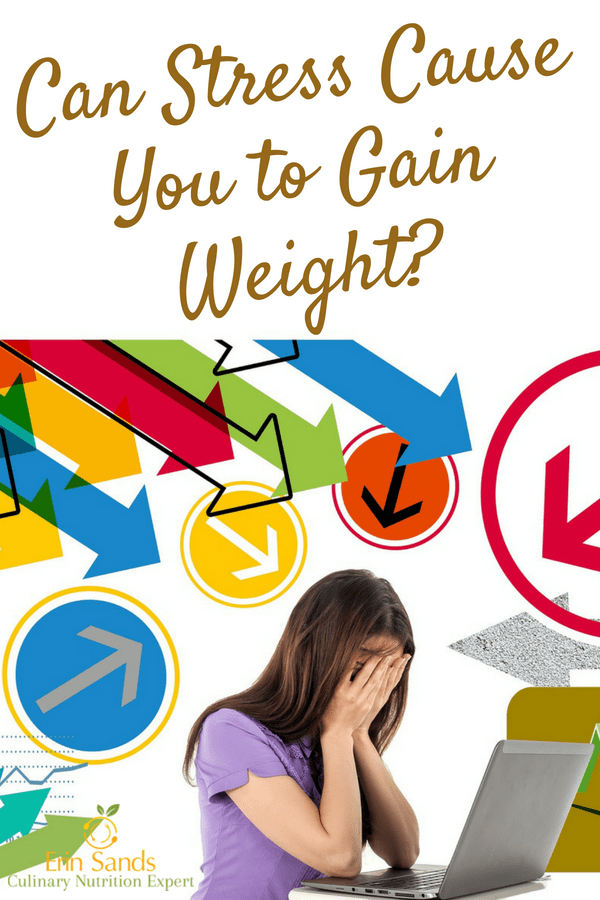You are exercising, eating healthy, but you just keep adding weight on? What’s going on? Stress can absolutely wreak havoc on your metabolism. If you are having trouble losing weight, one thing to consider is reducing stress in your life as chronic stress can cause you to gain weight.
Cortisol and weight gain
When you are under stress, the adrenal gland produces cortisol. If you are experiencing chronic stress, then your cortisol levels can become elevated which can really mess with your metabolism. It can leave you feeling tired, which makes you less likely to exercise. If your cortisol levels remain high, your body signals you to replenish your energy with food that you are unlikely to use up. Your body will also slow down your metabolism to save energy to deal with the threat that is causing you to feel stressed.
It is this increase in cortisol that can also cause you to crave unhealthy foods that comfort you.
Over time, high cortisol levels will lead to a decrease in muscle mass, which causes you to burn fewer calories. Thus you may gain weight.
Cortisol and belly fat
Chronic stress levels can lead to increased belly fat. A Yale study showed that even in women that are not overweight, higher levels of cortisol are correlated with excess belly fat.
There is a reason for that. Increased cortisol in your fat cells can trigger them to grow because of an enzyme called HSD. Fat cells deep in your abdomen contain more HSD than your other fat cells. So that’s where the fat ends up, around the belly. High cortisol causes our bodies to store fat, especially around our organs, instead of using it.
Sleep and stress

Stress is the biggest factor in keeping you from getting a good night’s sleep. A lack of sleep caused by stress disrupts the chemicals in your brain that control your appetite. Also, if you are tired, you a more likely to crave carbohydrates or drink coffee, which continues to disrupt your sleep cycle, and you go in circles with ups and downs of energy throughout the day. This can lead you to crave sugar or other carbohydrate-laden foods for more energy.
Thyroid Function and stress
One of the main concerns with chronic stress is impaired thyroid function. Thyroid disease is becoming epidemic in western countries. The thyroid is a gland in the neck that produces hormones. The most important of these is T3 and T4. These hormones convert calories into energy and are therefore the master of metabolism. If you are not producing enough of these hormones, it is common to gain weight.
Periods of prolonged stress can inhibit the bodies conversion from T4 to T3 and can cause reverse T3. In this case, it is almost impossible to lose weight. Be sure to get your thyroid checked by your doctor.
Reducing Cortisol to Lose Weight
To reduce cortisol, you must work to reduce your stress levels. Find techniques that help you calm down. Taking a walk, a long hot bath, deep breathing, acupuncture, and massage are just to name a few.
Even during prolonged stressful circumstances, you can keep your hormone levels from staying elevated. First, eat a diet consisting of whole foods that are anti-inflammatory.
Reduce your sugar, caffeine, and alcohol consumption. Eat Fat, fiber, and protein at every meal or snack to help keep your blood sugar and hormone levels normal, which will help you manage those cravings!

Exercise
We all know that exercise is good for us, but particularly light exercise releases endorphins into the body which helps us to relieve stress,
Get enough sleep
A good nights sleep is essential to reducing stress. Turn your screens off at least two hours before bedtime. Turn the power off on your cell phone as the wi-fi signal can disrupt your sleep cycle. Try reading a book to wind down or listen to soft music. Chamomile tea is a natural sleep remedy that helps to relax you and reduces your cortisol levels. If you are having trouble falling asleep, eight ounces of tart cherry juice contains natural melatonin that can naturally help with insomnia. You could take a magnesium supplement if needed. In addition, don’t eat three hours before bedtime. Your body needs to wind down and rest, and food revs you back up again as the body has to work to digest.
Drink water

It is important to stay hydrated by drinking plenty of water. I use this Berkey System to filter my water so that it’s as pure as possible.
Laugh
There has been so much research on laughter affecting our health and particular reducing our stress. So have fun, play with your kids, watch a funny movie, and have a good laugh.
Eat Dark Chocolate

Ok, that’s my favorite advice, and also my go to in times of stress. Flavonols in dark chocolate reduce cortisol, just go for at 70% chocolate and the least amount of sugar. Nothing to feel guilty about here?
There are so many ways to naturally reduce your stress, which may be contributing to your weight. It’s time to take control! If you have any questions, comment below!
Sources
Tomiyama, A. Janet, et al. “Low-Calorie Dieting Increases Cortisol.” Advances in Pediatrics., U.S. National Library of Medicine, 1 May 2011, www.ncbi.nlm.nih.gov/pmc/articles/PMC2895000/.
Seematter, G, et al. “Stress and Metabolism.” Advances in Pediatrics., U.S. National Library of Medicine, 8 Mar. 2005, www.ncbi.nlm.nih.gov/pubmed/18370704.
Latest posts by Erin Sands (see all)
- Meyer Lemon Tart – Gluten/Dairy Free - January 23, 2020
- Gingery Roasted Cranberry Sauce - November 9, 2019
- Blueberry Skillet Baked Oatmeal - June 18, 2019

